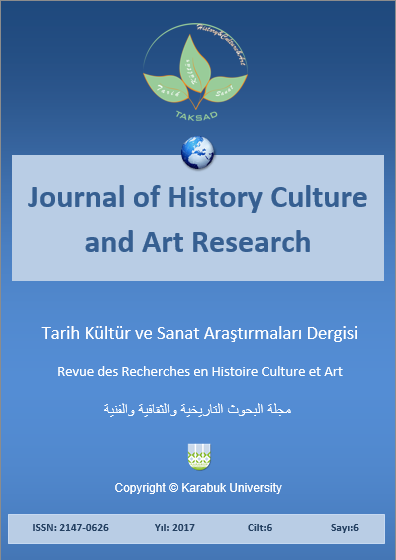Tribal Legal System, Social Order and Conflict Resolution: A Case of Provincially Administered Tribal Areas of Pakistan
DOI:
https://doi.org/10.7596/taksad.v6i6.1106Keywords:
Kinship and family System, Tribal code of conduct, Segmentary lineage, Kinship terms.Abstract
This paper aims to explore the importance of kinship system in tribal areas (Fazla Kach) of province Punjab, Pakistan. An exploratory research was conducted by using the qualitative research tools for data collection including key informant interviewing and participant observation as the major tools for data collection. It was revealed through data analysis that kinship system plays a central role in tribal life. Kinship system merely serves as the code of tribal life of Buzdar tribe of Fazla Kach, Punjab Pakistan. Extended family system is lead and identified by the grandfather’s name who possesses the ultimate decision-making power. Kinship system plays a pivotal role to maintain social order through repressive tribal laws which are executed through Meal-Maraka (indigenous conflict resolution body). Each minimal lineage is represented by Sofaid Rish (white bearded). Furthermore, data revealed that segmentary lineage kinship is decisive in formal electoral process. Ritual and ceremonies, property inheritance, communal land holding and sheep flock herding and conflict resolution are conducted via patriarchal kinship system. Females are very active in daily chores of life yet are invisible in socio-political and economic system of the tribe.
References
Alavi, H. (2008). Peasant classes and primordial loyalties. The Journal of Peasant Studies, 1(1), 23-62.
Buchler, I. R. & Selby, H. A. (1968). Kinship and social organization: An introduction to theory and method. New York: Macmillan.
Buzdar, Nek. (2008). The shepherds of Koh-i-Sulaiman in Balochistan: A Socio- Economic Profile. Balochi Academy, Quetta.
Craig, D. (1979). Immortality through kinship: The vertical transmission of substance and symbolic estate. American Anthropologist, 81(1), 94-96.
Dube, L. (1997). Women and kinship: Comparative perspectives on gender in South and South-East Asia.
Ember, C. R. & Ember, M. (2007). Cultural anthropology. Upper Saddle River: Pearson Prentice Hall.
Ferraro, G. & Andreatta, S. (2011). Cultural anthropology: An applied perspective. Nelson Education.
Fortes, M. (1953). The structure of unilineal descent groups. American anthropologist, 55(1), 17-41.
Fox, R. (1967). Kinship and marriage: An anthropological perspective (No. 50). Cambridge University Press.
Glatzer, B. (2002). The Pashtun tribal system. Concept of tribal society, 5, 265-282.
Goody, J. (1975). The character of kinship. Cambridge University Press.
Haviland, W. A.; Prins, H. E.; Walrath, D. & McBride, B. (2013). Anthropology: The human challenge. Cengage Learning.
Helfgott, L. M. (1977). Tribalism as a socioeconomic formation in Iranian history. Iranian Studies, 10(1-2), 36-61.
Lindholm, C. (1986). Kinship structure and political authority: The Middle East and Central Asia. Comparative Studies in Society and History, 28(2), 334-355.
Moore, J. D. (Ed.). (2009). Visions of culture: an annotated reader. Rowman Altamira.
Murdock, G. P. (1949). Social structure.
Nakane, C. (1967). Kinship and economic organization in rural Japan. Kinship and economic organization in rural Japan.
Radcliffe-Brown, A. R. (1941). The study of kinship systems. The Journal of the Royal Anthropological Institute of Great Britain and Ireland, 71(1/2), 1-18.
Read, D. (2013). A new approach to forming a typology of kinship terminology systems: From Morgan and Murdock to the present. Browser Download This Paper.
Schwimmer, B. (2003). Spatial and social perspectives on household organization. Retrieved on, 20(11), 2005.
Smith, M. G. (2014). On segmentary lineage systems. The Journal of the Royal Anthropological Institute of Great Britain and Ireland, 86(2), 39-80.
Spoehr, A. (1950). Observations on the Study of Kinship. American Anthropologist, 52(1), 1-15.
Strathern, M. (1992). After nature: English kinship in the late twentieth century (Vol. 1989). Cambridge University Press.
Uchendu, V. C. (2016). 53.'Kola Hospitality and Igbo Lineage Structure. Man, 47-50.
Downloads
Published
How to Cite
Issue
Section
License
All papers licensed under Creative Commons 4.0 CC-BY.- Share — copy and redistribute the material in any medium or format
- Adapt — remix, transform, and build upon the material for any purpose, even commercially.
Under the following terms:
Attribution — You must give appropriate credit, provide a link to the license, and indicate if changes were made. You may do so in any reasonable manner, but not in any way that suggests the licensor endorses you or your use.
- No additional restrictions — You may not apply legal terms or technological measures that legally restrict others from doing anything the license permits.







